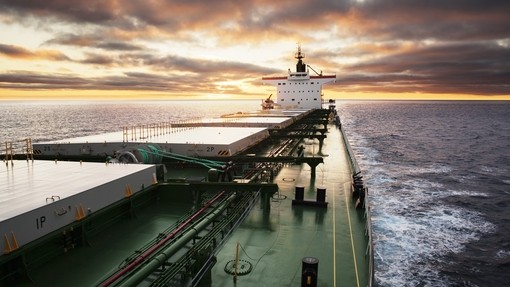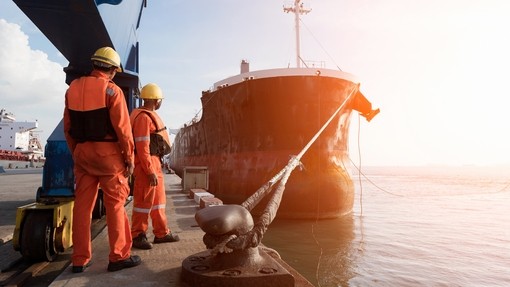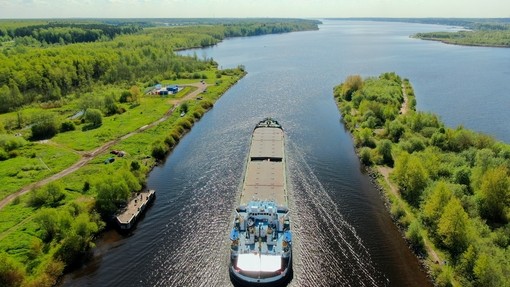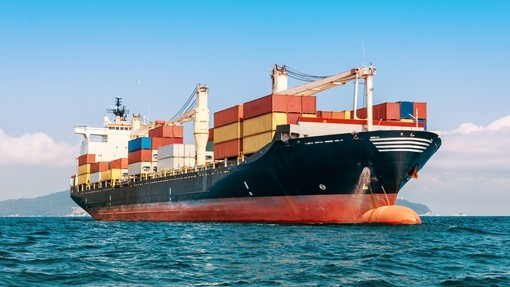Glencore Energy UK Ltd and Glencore Ltd -v- Freeport Holdings Ltd [2019] EWCA Civ 388

Details
The court considered an appeal, the primary issue of which was whether article IV rule 2(b) of the Hague-Visby Rules is capable of exempting the carrier from liability to the cargo owner for damage caused by fire if that fire were caused deliberately or ‘barratrously’. The appeal also raised a potential issue as to the mental element for an act of barratry.
Background
At first instance (a summary of which appeared in the February 2018 digest), the court heard how the “LADY M” suffered a fire in the engine control room while the vessel was en-route from Russia to the USA. The perpetrator of the fire was the vessel’s chief engineer, acting alone. It was believed he was under extreme emotional stress and/or anxiety due to the illness of his mother, or alternatively suffering from an unknown and undiagnosed personality disorder and/or mental illness.
Owners (the respondent) engaged salvors and declared general average. The cargo owners (appellants) incurred liability to the vessel’s salvors and costs of defending arbitration proceedings which they sought to recover from the respondent. The appellants alleged breach of the contract(s) of carriage contained under four bills of lading (subject to the Hague-Visby Rules), or alternatively in bailment, and a declaration that they were not liable to make a general average contribution. The respondent denied liability and counterclaimed a general average contribution.
Three issues were put before the High Court:
- Did the conduct of the chief engineer constitute barratry?
- Was Article IV rule 2(b) capable of exempting the defendant from liability if the fire was deliberately or barratrously caused?
- Was the defendant exempt from liability under the ‘any other cause’ exemption in Article IV rule 2(q)?
The judge concluded on the first question that whether the conduct of the chief engineer constituted barratry depended on further facts that would need to be found as to his state of mind, but that the issue was not determinative of whether the owners were exempt from liability for the fire under article IV.2(b) or (q). So far as the second question was concerned, he found that article IV.2(b) was capable of exempting the owners from liability if the fire were caused deliberately or barratrously. On the third question, he held that the owners were not exempt from liability for the fire under article IV.2(q).
Appeal
Leave to appeal was granted to the cargo owners on two grounds:
- on the agreed and assumed facts, the conduct of the chief engineer in starting the fire constituted barratry and that this conclusion did not depend on a close analysis of his state of mind at the time; and
- the defence under article IV.2(b) of the Hague-Visby Rules was not available where the fire was caused by the barratrous act of the Master or crew.
Lord Justice Simon first dealt with the second issue on the basis that should he find that owners were able to rely on the defence under article IV.2(b), then he would not need to deal with the first issue in such great depth.
Issue 2: whether the provisions of article IV.2(b) are capable of exempting owners from fire caused deliberately by the chief engineer?
Article IV.2(b) of the Hague-Visby Rules states:
2. Neither the carrier nor the ship shall be responsible for loss or damage arising or resulting from:
…
(b) Fire, unless caused by the actual fault or privity of the carrier.
Interpretation of the specific wording of the article was required to see whether it could operate to exclude the liability of carriers for fires caused deliberately or barratrously by a crew member. It was Glencore’s case that at common law, a term which excluded liability for ‘fire’ would not have provided a defence if it were caused by the negligence or barratry of the crew; and consequently the exception in article IV.2(b) did not have the effect of excluding liability for fires which were caused either negligently or deliberately.
Owners argued that the judge was correct in his interpretation of article IV.2(b); the words are clear and emphatic, and set out an exception for all loss or damage arising or resulting from fire, subject to the proviso: where the fire is caused with the ‘actual fault or privity of the carrier’. Glencore’s interpretation would require a further implied proviso to be added, ‘or the barratry of master or crew’. They argued that there was no proper basis for implying such words, not least because ‘barratry’ was not a relevant concept in the Hague Rules.
The court was asked to consider the ‘travaux préparatoires’: the official record of the negotiations in the development of the original Hague Rules to help clarify the intentions of the rules. However, the judge agreed with the finding of the High Court that as the Hague and Hague-Visby Rules are the outcome of international conferences that are applied not just by the English courts, but also internationally, it is therefore in the ‘interests of uniformity’ that they should be construed on broad principles of interpretation which are generally accepted rather than rules of construction particular to English law.
Lord Justice Simon also considered the effect of the Vienna Convention on the Law of Treaties 1969 as a guide to interpretation of the rules. Article 31 of the convention states “A treaty shall be interpreted in good faith in accordance with the ordinary meaning to be given to the terms of the treaty in their context and in the light of its object and purpose.”
As such, the court found that the ordinary meaning of the words used should be preferred when interpreting the article. Lord Justice Simon stated:
‘The words, “fire, unless caused by the actual fault or privity of the carrier” is a phrase whose natural and ordinary meaning is clear. The words exclude the carrier from liability for fire however caused, provided it is not caused with the actual fault or privity of the carrier… The word “fire” contains no implicit qualification as to how the fire is started, whether accidentally or deliberately, negligently or otherwise. Nor is there any implicit qualification depending on who may be responsible for the fire. The only express qualification is the proviso in the second part of the clause, “unless caused by the actual fault or privity of the carrier.” Unless the cause of the fire falls within the proviso, fire is an excepted peril.’
The judge rejected Glencore’s further arguments based on pre-existing case law that he would be required to take into account the common law position that exclusion clauses for fire or other perils could not operate should the peril excluded be brought about by negligence, of either the owner or his servants or agents. He found that by definition, an act of barratry occurs without the actual fault or privity of the owner, and therefore Glencore’s argument would require further qualification to cover barratry, such that the article would read ‘Fire, unless caused by the actual fault or privity of the carrier, or the fault or neglect of the crew’. The court found that they could see no proper basis for implying such additional words, either as a matter of ordinary meaning or any supplementary arguments advanced by Glencore, but found principled reasons for not doing so.
Issue 1: whether or not the conduct of the chief engineer necessarily constituted barratry on the assumed facts?
As the court found that owners were able to rely on the defence under article IV.2(b), the issue of whether the chief engineer’s assumed conduct constituted barratry or not did not need to be decided. However, Lord Justice Simon did state that he believed the High Court was wrong to allow owners to raise the issue of insanity in the manner they did, as the judge was not given a factual basis upon which he could consider the question posed to him. By permitting the preliminary issues to be presented to the court as they were, and adding further hypothesis during the trial, owners were effectively being allowed to question the judge as to whether the fact the Chief Engineer might have been insane would change his mind in some way. As such, Lord Justice Simon, Lord Justice Coulson and Sir Geoffrey Vos (as Chancellor of the High Court) took the opportunity of illustrating the importance of closely defining the ambit of preliminary issues before the trial of those issues and not adding further hypotheses during the trial.
In failing to dispose of the first issue in the court of first instance due to the need for more facts as to the state of the chief engineer’s state of mind, Mr Justice Popplewell made it clear that owners would have to amend their pleaded case so as to reflect the argument that he was suffering from insanity at the time of starting the fire. As owners had failed to do so by the time of the appeal (perhaps due the fact they did not have sufficient evidence of the same) the court allowed Glencore’s appeal on issue 1.
Case comment
This appeal confirmed the previous decision in the High Court that the defence under article IV.2(b) is available to an owner for fire on board a vessel, howsoever caused, unless by the actual fault or privity of the carrier. As the chief engineer had acted alone, and there was no evidence to suggest the knowledge of the carrier, the Court of Appeal has confirmed that reliance can be placed on the wording as generally understood in the Hague-Visby Rules.
The judgment further emphasises that English courts will not be willing to interpret the Hague-Visby Rules, or any other international convention, in a broader manner than the ordinary meaning of the words used, giving reassurance that the courts will not seek to impose English common law principles on international instruments.
This appeal case again serves to illustrate the importance of formulating appropriate preliminary issues between the parties in such cases. Even though facts may be agreed prior to the request for a decision on preliminary issues, it cannot be guaranteed that those issues selected are capable of being resolved with the information made available to the court.
This article originally appeared in the April 2019 edition of shipping case digest. Other articles include:
Michael Wilson & ‘Partners’ Ltd -v- John Forster Emmott [2019] EWCA Civ 219
Lambert -v- VJ Glover Limited (1) and Friday (2): [2019] EWHC 776 (Admlty)






